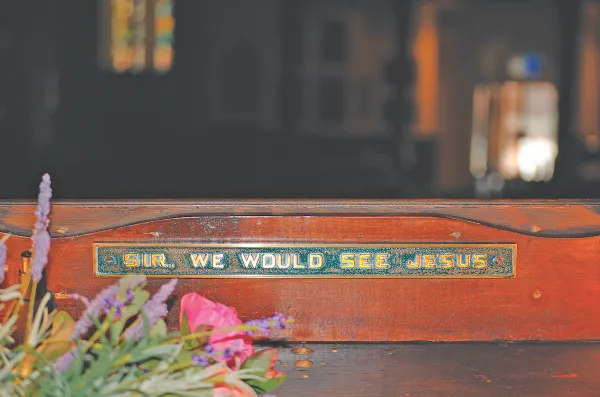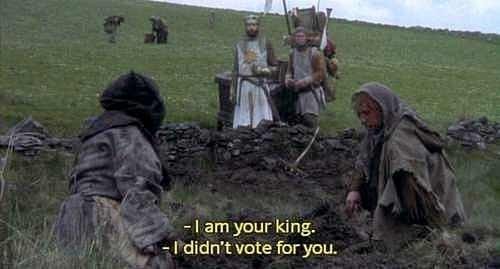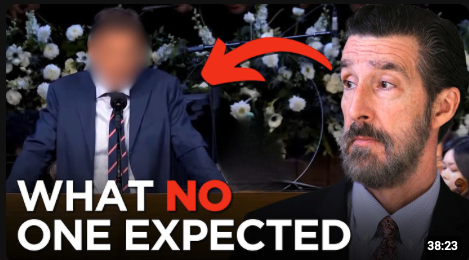Where Were You When...

Today will be one of those Where were you when… days for many Americans. News broke that Charlie Kirk was shot and killed while speaking at a Utah university event. Whatever you thought of his work, his death is a tragedy. And, once again, we’re left asking what kind of people we will be when the worst happens.
I’ve been thinking about that question every September for more than two decades.
On September 11, 2001, I wasn’t in the United States. I was an exchange student in Hong Kong. Late that night my dorm RAs rushed the Americans to the student center, where the only TV in the building lived. A Cantonese newscast flickered across the screen. I watched what I'd later discover was a second plane strike a tower without context or words to match the images. The next day, when the internet stabilized, I finally began to grasp what had happened.
But not like I would have if I were home.
Being in China, I missed all of the things everyone mentions when they talk about 9/11. The candlelight vigils, the packed churches, the flags that lined front porches. I missed the togetherness. Being overseas meant I never stepped into the shared national moment everyone here remembers.
Whenever people tell their 9/11 stories, the details vary, but the refrain rarely does: unity. Churches filled. Neighbors checked on neighbors. For a brief time, it felt like we mattered more than the labels that divide us.
If a similar attack happened today, I fear our instinct might be the opposite. We would look around for who to blame, faster than we would grieve. We would ask,Who’s fault is this? before we asked, Who needs help? Our political reflexes are now so quick, so trained by outrage, that even tragedy struggles to slow them down.
And yet, even that golden memory after 9/11 was never going to last.
Unity built on fear, grief, or national feeling is real. But it is also temporary. Patriotism can draw us shoulder‑to‑shoulder for a season. Politics can rally us to a cause. But neither can bind enemies into family or heal what sin fractures.
Scripture is painfully honest about this. Human solutions can restrain chaos; they cannot reconcile hearts. Only the gospel does that.
In Jesus, Paul wrote, the dividing lines of this world; “Jew and Greek, slave and free, male and female", give way to a new identity that outlasts every old one (Gal. 3:28). Christ “is our peace,” the one who “has broken down the dividing wall of hostility” and created “one new humanity” (Eph. 2:14–16).
This is not unity by uniformity or unity by conquest of our enemies; it is unity by new birth. And it is received, not engineered.
Christians have not always lived this well.
We’ve split, postured, and sometimes baptized our politics with Bible verses. Confession and repentance belong at the beginning of any honest Christian reflection on unity.
But our failures don’t void the promise. Jesus prayed, on the night he was betrayed, “that they may all be one… so that the world may believe” (John 17:21). The church’s unity is not some strategy to leverage; it’s a signpost... pointing beyond us to the One who makes enemies friends (Rom. 5:10).
So what does that mean on a day like this?
- Begin with lament, not leverage. When a person is killed, Christians should grieve before we analyze. “Weep with those who weep” (Rom. 12:15) is not a suggestion to be postponed until our side has posted a statement.
- Reject spoon-fed hate. Our media diets often hand us pre‑fabricated suspicions. The gospel gives us better reflexes: slow to speak, slow to anger (James 1:19).
- Practice near‑field unity. You can’t reconcile Washington DC, but you can reconcile with a neighbor. Share a meal across differences. Pray with a coworker who voted differently. Bear someone’s burden this week (Gal. 6:2).
- Keep the church the church. The local church is not a voter coalition with hymnals. It is Christ’s body, gathered around his Word and his Table, where the we is given by grace. Not by nationality, class, voting patterns, or algorithm.
- Tell a bigger story. Politics tells us history turns on elections. The gospel says history turns on a cross and an empty tomb. And it ends, by the way, with a multi‑ethnic chorus surrounding the Lamb (Rev. 7:9–10).
Patriotism has its place. So does policy. They are good as far as they go. But they cannot carry the weight of the human longing to be truly one. Only Jesus can do that. And he already has. Our task, then, is not to manufacture a unity that keeps slipping through our fingers; it is to receive and embody the unity Christ has purchased, especially on the days when the world splits into camps and dares us to pick one.
“Where were you when…?” We’ll answer that many times in life, whether that's JFK, 9/11, or... Charlie Kirk. More important is who we are becoming when we answer it. May the Church be the people whose first instinct is prayer, whose posture is gentleness, whose hope is stronger than headlines, and whose unity makes the gospel visible.
Come, Lord Jesus. Make us one.



